How experts say the federal government can speed up COVID-19 vaccinations
They say the federal government hasn't done enough to help states.
The effort to vaccinate Americans against COVID-19 has been marked by criticism that doses are being doled out too slowly to prevent additional spread and deaths -- and some experts are calling for a sharply stepped-up national approach.
More than 4.8 million Americans have received their first dose of the two-dose regimen of the COVID-19 vaccines from Pfizer and Moderna, according to data from the Centers for Disease Control and Prevention published Tuesday morning.
That number represents only a small portion of the more than 15.4 million doses distributed to states so far, leading to questions about what's caused the delay and complaints that the federal government and Operation Warp Speed hasn't done enough to help state vaccination efforts.
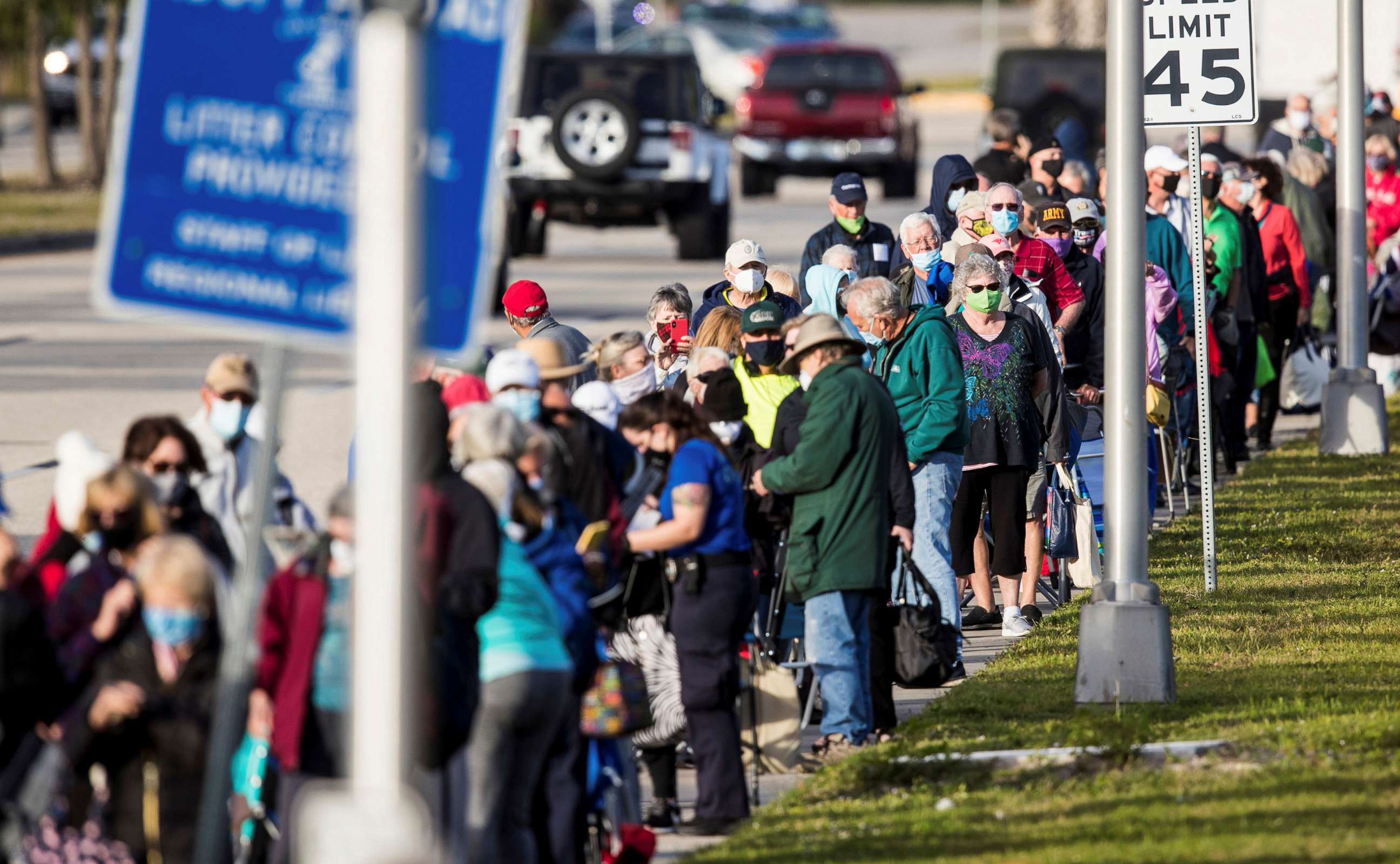
"The federal plan was to load up, you know, 40 million boxes of IKEA furniture and the states are opening up the box and [saying] 'Oh my god, it says assembly required' that's what's happened, right and so there was never a plan to vaccinate the American people," said Dr. Peter Hotez, Co-Director of the Center for Vaccine Development at Texas Children’s Hospital and Dean of the National School of Tropical Medicine at Baylor College of Medicine.
The FDA provided information and fact sheets as a kind of "assembly instructions" on how to prepare the concentrated vaccine doses to be administered and the Centers for Disease Control and Prevention supplied educational materials for hospitals, but it is largely up to states and specific facilities to determine how to process and carry out vaccinations and how much they can handle at a time.
Officials with Operation Warp Speed say there is a delay in collecting data from states and the vaccine rollout was slower because of the holidays.
But Hotez and other experts say while the federal government should have taken ownership of vaccination efforts from the beginning, there are changes that could speed up the pace and meet the goal of vaccinating the vast majority of the population needed to stop the spread of the virus through herd immunity. He said vaccinating millions of people in a matter of months requires more infrastructure than sending people to their local hospital or pharmacies, but the federal government can help states and cities open mass vaccination sites able to administer more vaccines every day.
"How are you going to open up RFK Stadium? How are you going to open up FedEx Field now and you're gonna how are you going to open up, where the Nationals play and create a venue, with which we can vaccinate those individuals," he said of how to expand vaccinations in Washington, D.C.
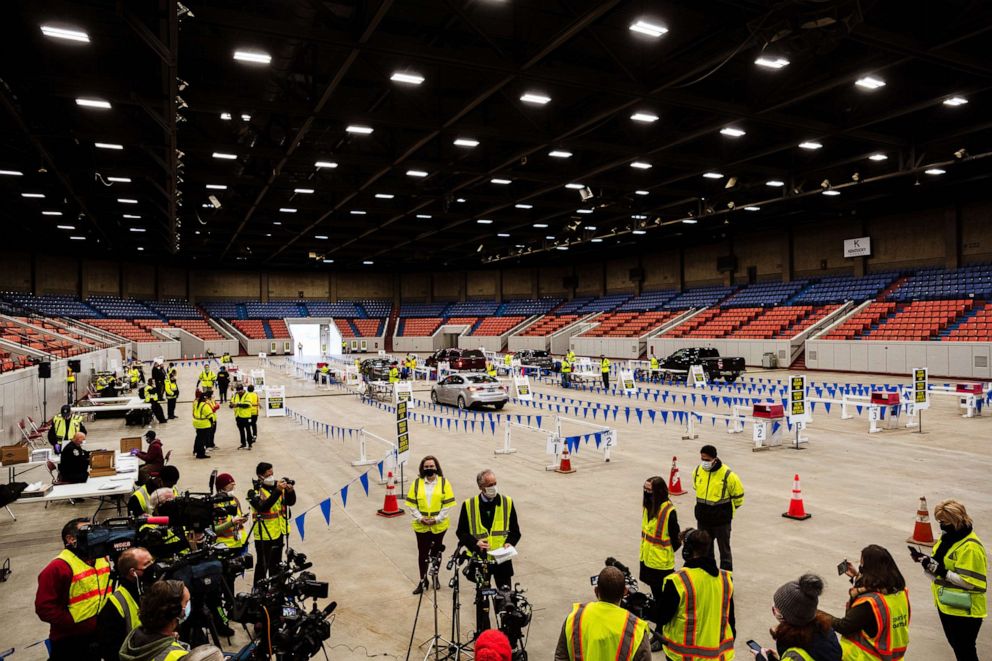
Hotez said the federal government should also set clear goals on how many people need to be vaccinated each day and put less emphasis on phased eligibility if doing so interferes with that timeline. He said making vaccines available to specific populations or job categories beyond health care workers and nursing home facilities is too fussy and complex.
"There is no thought to how to operationalize that [Phase] 1B, 1C," he said of the next groups recommended to receive the vaccine under CDC guidelines.
"What are you going to do, take a pharmacist at Walmart, and they can make her the gatekeeper for who gets vaccinated and who doesn't? I mean, it doesn't make any sense," he told ABC.
Surgeon General Jerome Adams said Tuesday his message to states is just that, match up supply and demand.
"Your headline today really should be surgeon general tells states and governors to move quickly to other priority groups. If the demand isn't there in 1a, go to 1b and continue on down. If the demand isn't there in one location, move those vaccines to another location," Adams said on NBC's "Today" program.
Adams also endorsed an idea supported by former FDA Commissioner Scott Gottlieb who says there should be more shipments of vaccines going to pharmacies to start vaccinating the populations with the most demand for the vaccine. Adams said there will be more information this week about ramping up vaccination efforts from CVS and Walgreens, both of which are working with Operation Warp Speed.
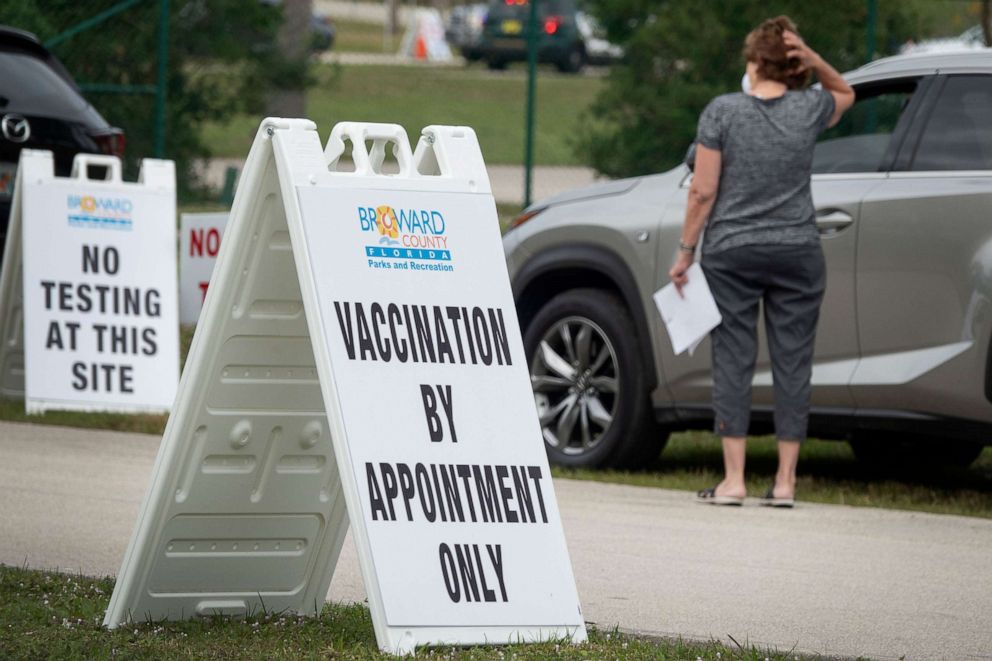
Houston reported so much demand for appointments when vaccine doses were made available to older adults that its call center was overwhelmed on the first day. And vaccination sites in Florida are seeing lines of older Americans early in the morning or even camping out overnight to get their vaccines.
"If stockpiles continue to build, eligibility should be expanded. We can move quickly through the prescribed phases of the vaccination program as inventories build and start offering it to the general public based on age, which can be lowered from 75 to 65 and so on. Society has a responsibility to help the most vulnerable, and the collective good depends on maximizing the number of vaccinations. These two goals don’t need to be in conflict," he wrote in an op-ed in the Wall Street Journal.
Gottlieb also discussed prioritizing shipping more doses out to states, instead of holding back second doses for people who have already received one. But Hotez said that won't address the slow pace of vaccinations on the ground.
The FDA said this week it doesn't plan to recommend any changes to how the two-dose vaccines should be administered without more research on the potential impact of delaying the second dose.
Dr. Leana Wen, an emergency physician and public health professor at George Washington University who previously worked as Baltimore's Health Commissioner, said the federal government could allocate additional shipments of vaccine doses to cities or parts of the country able to carry out vaccinations quickly as a sort of pilot program to show what works.
"Empower 10 cities, give them a million doses each, or more, to administer within a month period and let's learn from their experience, they're all going to do it differently," she told ABC News.
Wen said there are examples of vaccines being administered quickly, like hospitals in Texas able to give doses to health care workers 24/7 until all employees were vaccinated. But she said there are more examples of a specific bottleneck after vaccines are shipped to locations around the country, partly because of the administrative burden on hospitals and public health officials who are already overwhelmed with the high number of new COVID-19 cases.
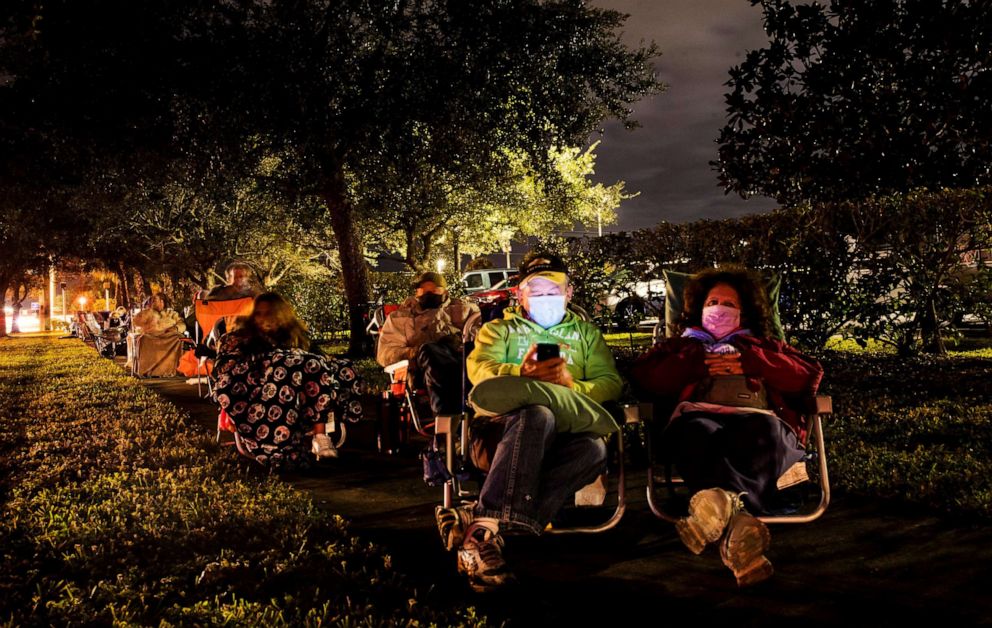
She said the federal government can help overwhelmed state and local health officials find more staff like retired nurses or medical students to help with scheduling, collecting information, or even administering vaccinations.
"That's something that can be done on a national level, the federal government can say for this period of time for this purpose we are suspending any licensing requirements. We are getting full liability cover for anyone doing vaccinations we are going to work it out with national medical, nursing, and pharmacists associations to do a national recruitment campaign," she said.
But that doesn't mean the federal government should takeover vaccine administration, said John Brownstein, chief innovation officer at Boston Children's Hospital and Harvard University professor. “The goal is more to support the states than going around them because it’s going to create unnecessary conflict” if the federal government dictates how it’s done, said Brownstein, an ABC contributor. Brownstein said he sees the federal government’s role as ensuring states have enough staff to give injections and helping to set up sites for mass vaccinations. Wen said states or the federal government could activate resources like the National Guard but officials tell ABC their role is likely to be more in helping with logistics like setting up vaccination sites or transporting vaccine shipments to rural areas.
A National Guard official told ABC News that guardsmen and women are less likely to be called on to administer vaccines because that would take medical troops away from their roles as civilian health care providers in their communities.
It's also unlikely a large federal activation of the National Guard will be necessary since governors can tap them for more specific needs at any time. At least seven states have mobilized National Guard units for administrative or logistical support on vaccination efforts. The government also can help support the deployment of online tools like “Vaccine Finder,” a system developed by Google to deploy the H1N1 vaccine. Brownstein, who runs Vaccine Finder, hopes the site will play a role in people to determine their personal eligibility for the COVID-19 vaccine based on location and availability.
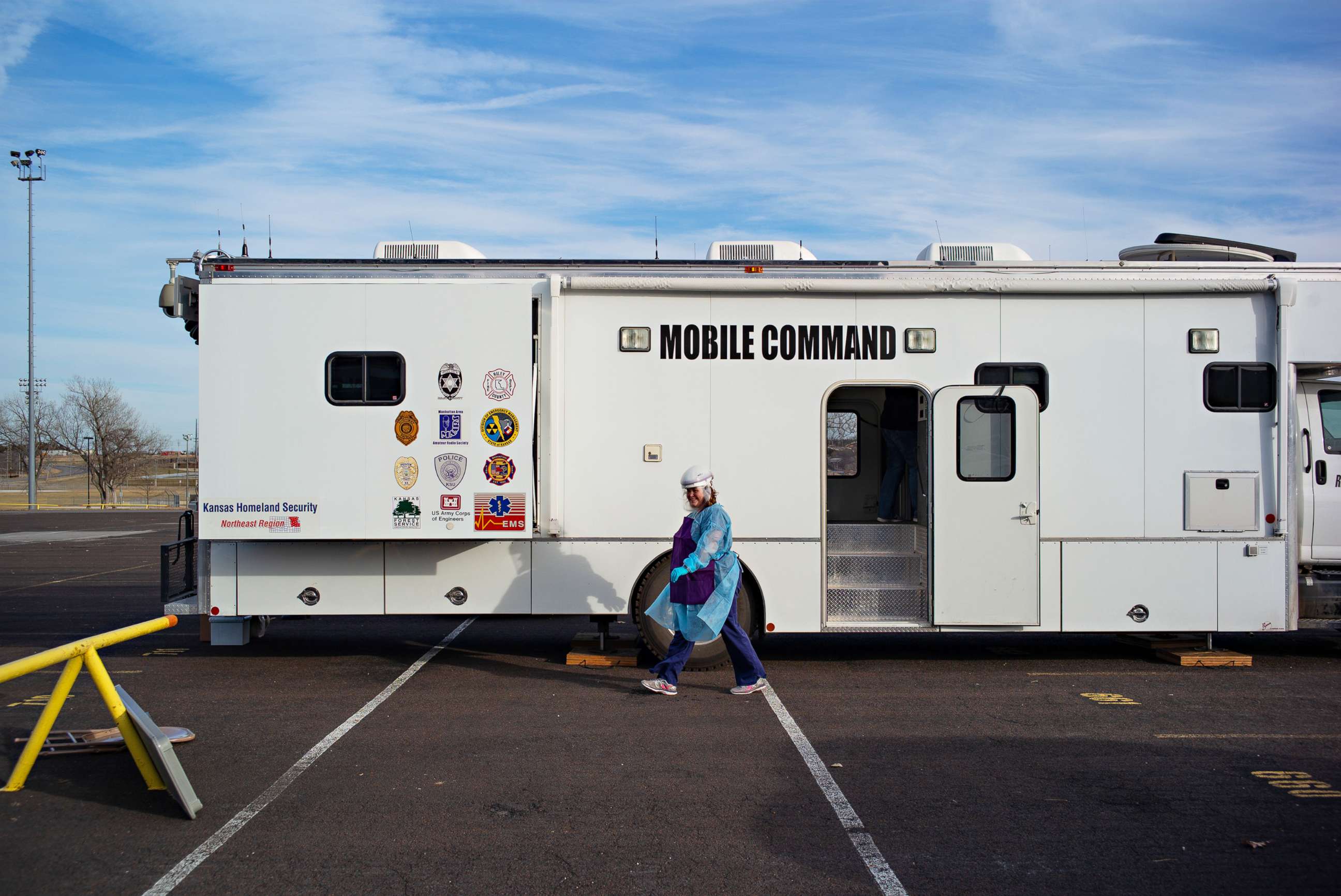
The incoming Biden administration has named several people to lead the high-profile areas of pandemic response, including vaccinations and testing, under a White House coordinator for all aspects of the response, Jeff Zeints.
Zeints has said "everything is on the table" for the Biden takeover of COVID-19 response in an interview with an opinion writer for the Washington Post, including using federal units to transport vaccines to more rural areas, using the Defense Production Act to increase manufacturing of vaccine components, and providing more money for state and local vaccination efforts.
Wen said one thing she will look for from the Biden administration is whether the federal government takes ultimate responsibility for all aspects of the process for the COVID-19 vaccines, saying "the buck has to stop with someone."
"Ultimately, while the implementation is going to be done on the ground the ultimate responsibility has to be with the federal government because this is a federal, this is a wartime effort that requires a national mobilization," she said.
ABC News' Matthew Seyler and Anne Flaherty contributed to this report.




